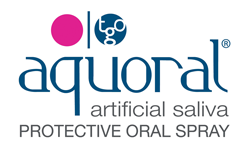The cornerstone of the dental hygiene profession is the application of critical thinking. Critical thinking has been defined as “the use of self-correction and monitoring to judge the rationality of thinking. It is the ability to challenge one’s own thinking.”1
Consider the following question: are we treating periodontal disease as an infectious disease or as an inflammatory disease? If periodontitis is simply an infectious disease, one would assume that through the employment of judicious therapeutic measures to reduce the microbial burden at regular intervals, great inroads would have been made in the eradication of the disease. An infectious disease is defined by the World Health Organization (WHO) as being ‘caused by pathogenic microorganisms, such as bacteria, viruses, parasites or fungi and may be spread, directly or indirectly, from one person to another.2 As dental professionals, we realize this is simply not the case; a recent CDC report provides the following data related to prevalence of periodontitis in the U.S.: 47.2 percent of adults aged 30 years and older have some form of periodontal disease. Periodontal Disease increases with age, 70.1 percent of adults 65 years and older have periodontal disease. 3 We now know that periodontal disease is one of the most prevalent non-communicable chronic diseases in our population, similar to cardiovascular disease and diabetes.4
We have treated dental caries as a bacterial infection and we are seeing a strong response to our therapeutic interventions. Conversely, are we achieving our therapeutic endpoints by treating periodontal disease as an infection? Mechanical debridement, employment of antimicrobials and short-term systemic antibiotic regimens, have simply not sustained the desired therapeutic endpoints we had hoped for. A meta-analysis to study the efficacy of systemic antibiotics was conducted by Cunha-Cruz et al.5 and published in 2008. Historically, systemic antibiotics have been recommended for the treatment of destructive periodontal disease. However, Cunha-Cruz found a lack of association between systemic antibiotics and tooth loss in adults, coupled with the growing concerns about antibiotic resistance, reinforcing the concern that prescription of antibiotics for chronic destructive periodontal diseases should only be made with extreme caution.5 (Note in the same statistical study, sub-antimicrobial doxycycline, i.e. Periostat, was found to be associated with decreased tooth loss.) Read the full article below.
Acknowledgements:
The first author would like to acknowledge Dr. Lorne Golub, Dr. Ying Gu, and Dr. Maria Ryan for their assistance in preparing this manuscript.
Disclaimer: The authors received no compensation for the writing of this article.
Acknowledgements: From May 2015 Oral Hygiene. Used with permission from Oral Health Group.











